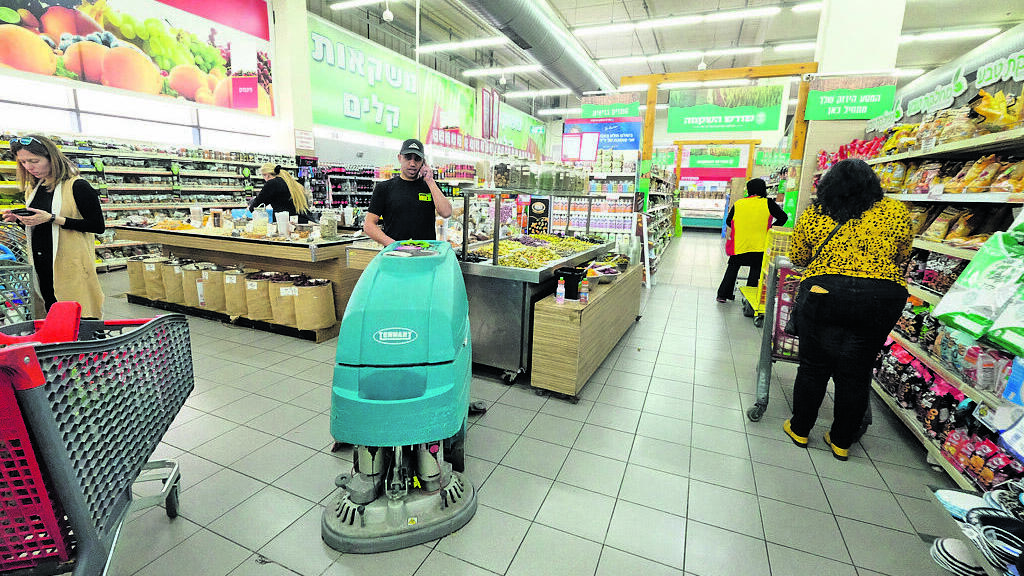While much of the rest of the world is experiencing an economic crisis triggered by the COVID-19 pandemic and exacerbated by the war in Ukraine, Israel can be said to be in relatively good condition.
Even so, the cost of living in the country – never cheap – is soaring, and a rising inflation rate is being felt by the population as it does so. The formation of a new government, however, could present an opportunity to implement policies to help ease the burden.
Dr. David Ash, a consultant with a doctorate in finance and real estate economics in Israel, says that it can be said that the Israeli economy is in a good state to a certain extent, with a low unemployment rate of 3.9%, an annual growth rate of some 6-7%, and a consumer price index of about 4%. The latter, he believes, is one of the lowest among Western economies.
Nonetheless, he cautions that this does not mean that Israel is not an expensive country for its citizens, which has been the case for decades.
Emre Akanak, an Israeli doctoral candidate, economist and data scientist, says that, despite the fact that Israel is experiencing a lower inflation rate (4.6%) than other Western countries, including the United States where it is currently 8.5%, inflation is felt more strongly by Israelis.
Akanak says this phenomenon is due to Israel’s elevated cost of living, emphasizing “food and housing prices [that] are higher than in many other countries.”
Ash points out that the cost of living has increased in the last year because Israel has an open and small market that responds accordingly when the prices around the globe rise.
He says that this rise is worsened by the fact that Israel is not truly feeling a recession in the country, so “people are still spending money on consumption. Hence, the prices keep going up.”
After close to four years of political instability that saw five rounds of elections, the Israeli electorate voted last week for a new parliament, with the results pointing to a relatively stable government led by former Prime Minister Binyamin Netanyahu being formed in the coming weeks.
The election results, Ash believes, can have a positive impact on the country’s economy. “A stable government is always good for the economy,” he says.
Even so, he notes that this positive effect on the economy is subject to the policies of the incoming government.
As such, Ash says that one needs to look at the soaring cost of living in Israel as two separate issues: housing prices and the cost of products for consumption.
He points out that in the past year, the average price of an apartment in Israel has risen by more than 18%, and by more than 150% in the past 15 years.
“It is very hard for people to buy an apartment,” he says. Indeed, the massive protests that erupted in Israel a little over a decade ago over the cost of living were in no small part triggered by young people who had no hope of getting a foot on the property ladder.
To resolve this issue, he suggests that “the government needs to encourage construction: more than 70,000 units per year for at least a few years.”
Concerning consumption, he notes that most industries in Israel are monopolized, which causes prices to soar.
He sees the solution to that as another job for the new government, which he says needs to dismantle the monopolies, encourage imports, and reduce custom duty.
Akanak says that another problem facing the country is what he calls “segregation” between workforces in different industries.
He cites the example of one of Israel’s assets – its efficient and flexible high-tech industry. High-tech exports reached $140 billion in 2021, some 29% of the country’s total $481.6 billion gross domestic product for that year.
And while the high-tech industry contributes to the economy overall, Akanak says, its benefits are not felt by workers in every industry.
“High-tech workers started to receive higher salaries and raises over inflation [but] other industries’ employees do not receive similar benefits.”
Therefore, he says, Israel should increase productivity in farming, agriculture, housing, construction, and heavy industry, and increase the salaries in these fields.
“Solving [this issue] requires more than just a strong government, it requires long-term state policy,” he says.
Ash also believes that if the new government encouraged housing construction, the price of an apartment in Israel would finally fall, and if it dismantled monopolies, encouraged imports for consumption purposes and cut the duty on those imports, the cost of living would also decrease.
Even so, he says his expectations for this are not high, as “no government in the last 10 years has managed to lower the cost of living.”






